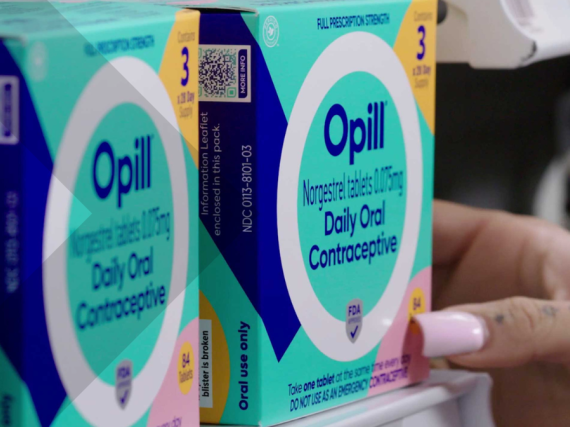Treating PCOS With Hormonal Birth Control
My freshman year of college I missed two weeks of school consecutively due to an unending period. I thank God for my roommate who brought me food because I could not even get out of bed. I finally was able to see a doctor who had some experience with these symptoms and was diagnosed with PCOS. It took until 2015 to find something that worked for me, which ended up being the pill—Kiersten, La Plata, MD
I love my birth control because it keeps my PCOS in check so that I’m not immobilized in bed 7 days out of the month. —JeNeen, Los Angeles, California
I was diagnosed with PCOS about 4 years ago and prescribed birth control to control my hormone levels so that I can have a higher chance of fertility later in life if I ever wanted to have a child.—Sophia, Washington, DC
Even for those with manageable periods, it’s often the worst time of the month with annoying cramping, bloating, nausea, or diarrhea. For those with polycystic ovary syndrome (PCOS), a period is worse than annoying, it’s severely painful. In honor of PCOS Awareness Month this September, we look into how taking birth control can help control the symptoms of PCOS.
While we don’t know the exact cause of PCOS, we do know that it’s common hormonal imbalance that causes multiple cysts to develop on the ovaries and can also cause heavy, irregular, or painful periods. Because the ovarian cysts interfere with the normal menstrual cycle, people with PCOS may not ovulate (release an egg) from their ovary each month resulting in irregular cycles, sporadic or extra long periods. Because of the hormone imbalance, people may also experience weight gain, acne, skin tags, thinning hair on their heads, or excess body hair. Of course, not everyone has all of these symptoms, and the severity of them can vary from person to person. But, when left untreated, PCOS leaves people at a higher risk for type 2 diabetes, infertility, high blood pressure, ovarian cancer, and heart disease.
For those who do not want to become pregnant, treating PCOS often involves taking hormonal birth control to manage the symptoms of PCOS, like painful periods, acne, and excess body hair. The pill, the patch, and the ring work by preventing ovulation which reduces the number of cysts on the ovary.
Types of contraception that reduce the overall number of periods for months or even years at a time can reduce period related symptoms of PCOS. Many who use a hormonal IUD stop getting periods all together after one year of use. Similarly, around half of all who use the shot stop getting their periods after one year.
Hormonal IUDs, the implant, the shot, the pill, the patch, and the ring can all make periods lighter because these birth control methods make the lining of the uterus thinner—a thinner uterine lining has less tissue to shed, resulting in lighter periods. All types of hormonal birth control reduce pain better than over-the-counter medication.
Taking the pill is the most common way that those who do not want to become pregnant but have PCOS to manage their non-period related symptoms. In addition to lighter or fewer periods, the hormones in pill can also reduce hair growth and acne breakouts. Most who use the pill to treat their PCOS a combination pill, containing estrogen and progestin, is the best choice. The hormones in this type of pill work to prevent ovulation, decrease ovarian cysts, and decrease the hormone related side effects from PCOS. If someone is unable to take estrogen, progestin-only pills may also improve symptoms of PCOS.
Because the severity of PCOS can vary from person to person, treatment plans are highly individual, it’s very important to talk to a provider about all the potential treatment options. And while talking to a provider, remember to consider factors such as cost, desire to have children in the future, regular vs. irregular bleeding, effectiveness at preventing pregnancy, and privacy.
Finding “your” method isn’t a one-time decision. As our lives change, the ideal method for us may change too. We encourage you to go on a journey to find a method that works for you right now. We want everyone to love their birth control so much that they shout, “Thanks, birth control!”
Check out our birth control explorer, learn more about the various methods, and find a clinic near you to talk to a provider about which method would work best for your right now. And if you have PCOS or have already been on a journey to find the best form of birth control for you, share your story!


